Advent means "arrival" or "coming". It is a season of the church year which consists of the four weeks before Christmas Day. During Advent, we slow down, reflect and wait in hopeful expectancy for the birth of Jesus in Bethlehem. Traditionally, Advent is observed through the lighting of candles on an evergreen Advent wreath. The wreath itself is a symbol of eternity and unending love, while the candles lit each week symbolize the story of the birth of Jesus.
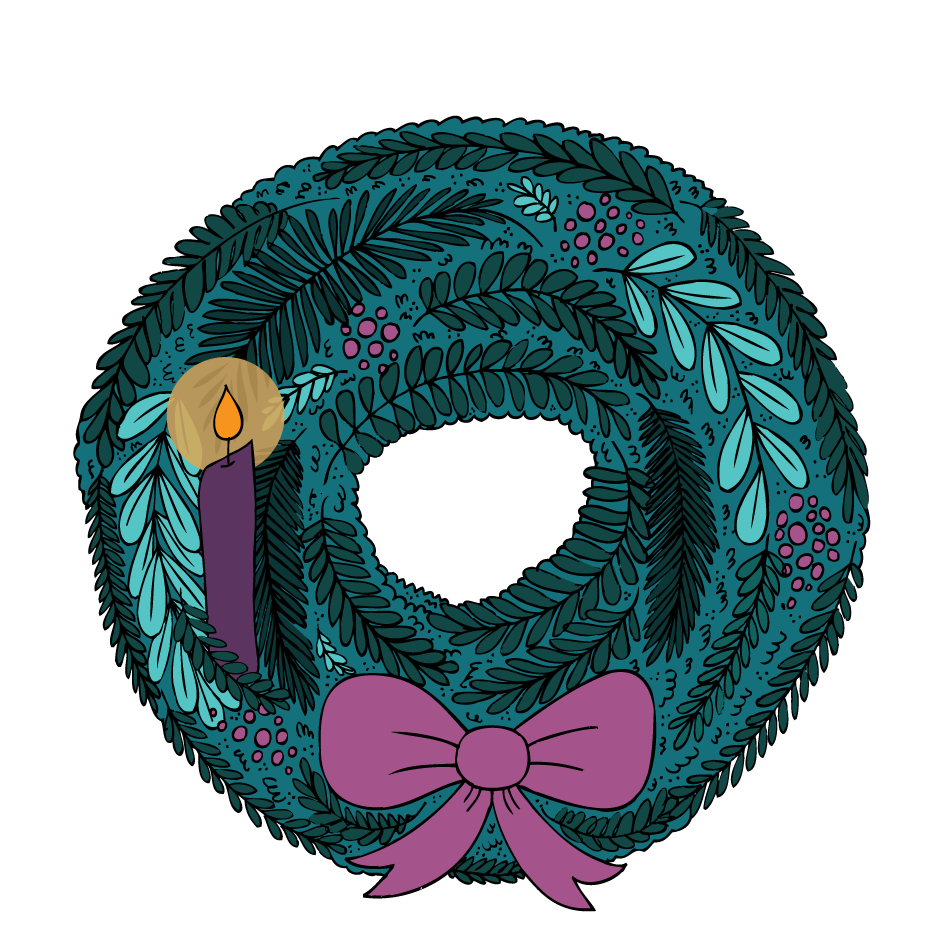
The First Candle
The Candle of Hope
Luke 1:26-30; Matthew 1:18-24; Isaiah 9:2&6The first candle of the Advent wreath is called the Hope Candle. In the Old Testament, we read about how God's people were suffering under power-hungry kings and religious leaders. God revealed Himself through the prophets, saying He would not leave His people without a Saviour. In the New Testament, the birth of Jesus Christ in Bethlehem was the fulfillment of those prophecies. In the first week of Advent, we light the candle of hope knowing that God will not leave us, and that through faith we can live in hope and trust in God's promise.
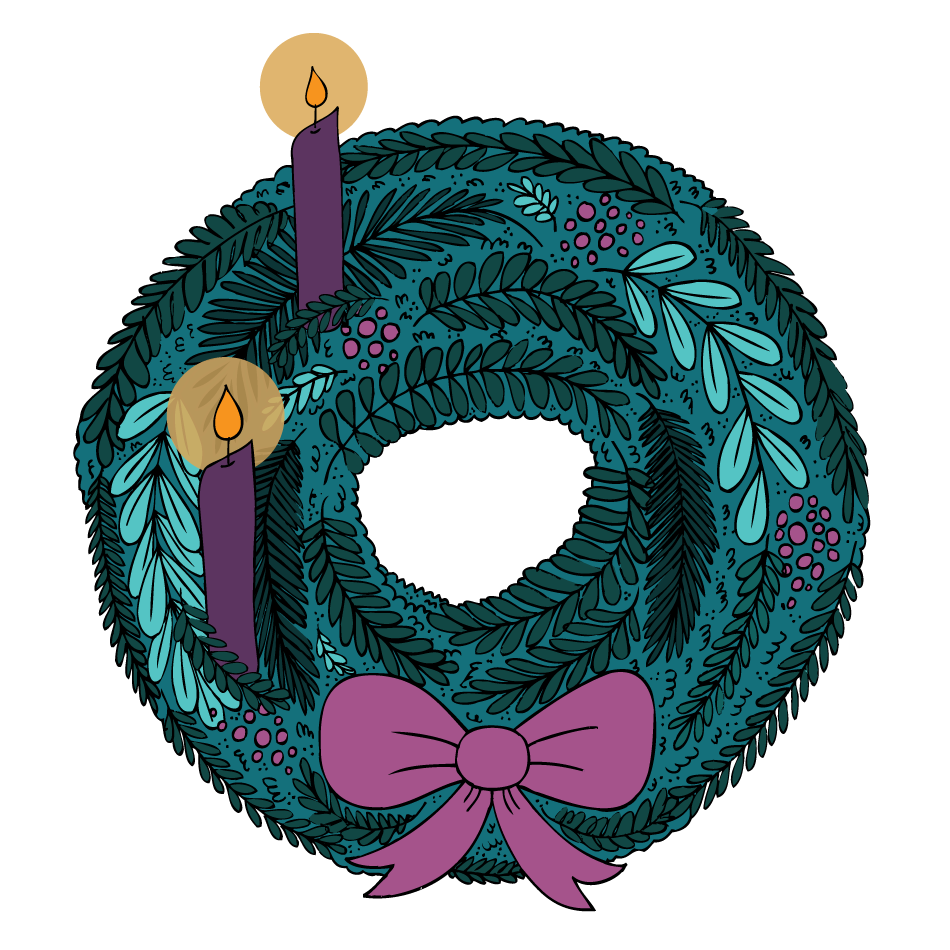
The Second Candle
The Candle of the Way
Luke 2:11-14; Luke 1:26-38; Matthew 1:20-25The second candle of the Advent wreath is called the Candle of the Way and reminds us of God’s immeasurable love for humanity. By sending His son Jesus to be among us, He invites the whole world to believe in Him and be in a relationship with Him.
This candle is also referred to as the Angels' candle. Angels are the messengers of God, and in the Christmas story, the angels are the bringers of the good news of the love of Christ to all people.
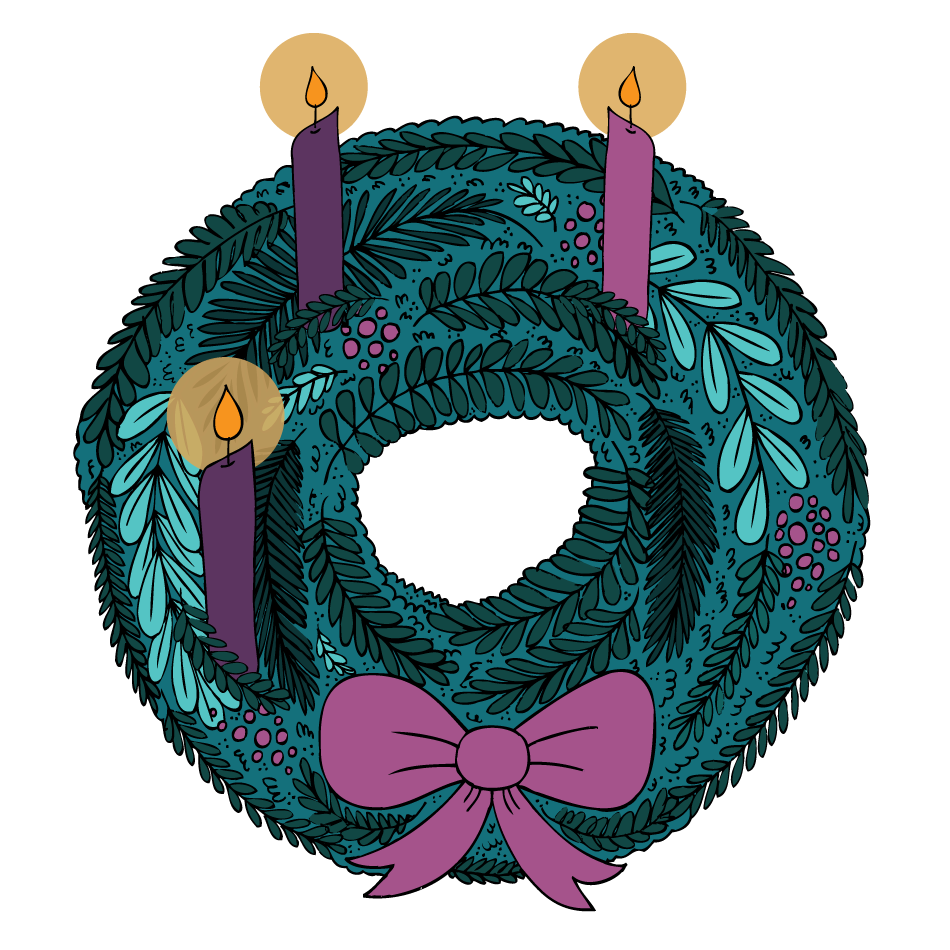
The Third Candle
The Candle of Joy
Luke 2:8-10The third candle is called the Candle of Joy. The rose candle, symbolizes joy and celebration, while the purple candles represent preparation/anticipation for the coming of Christ. The rose candle is lit in honour of the Shepherds whose hearts were filled with joy when they learned about the birth of Jesus. God sent His angels to proclaim the good news to shepherds as they were tending their flocks in the middle of the night. Shepherds receiving their first announcement reminds us how Jesus comes to us in ordinary places, among ordinary people. The angel said, "Be not afraid; for behold, I bring you good news of a great joy which will come to all the people." In the third week of Advent, we celebrate the joy that Christ's birth brings not to some, but to all people.
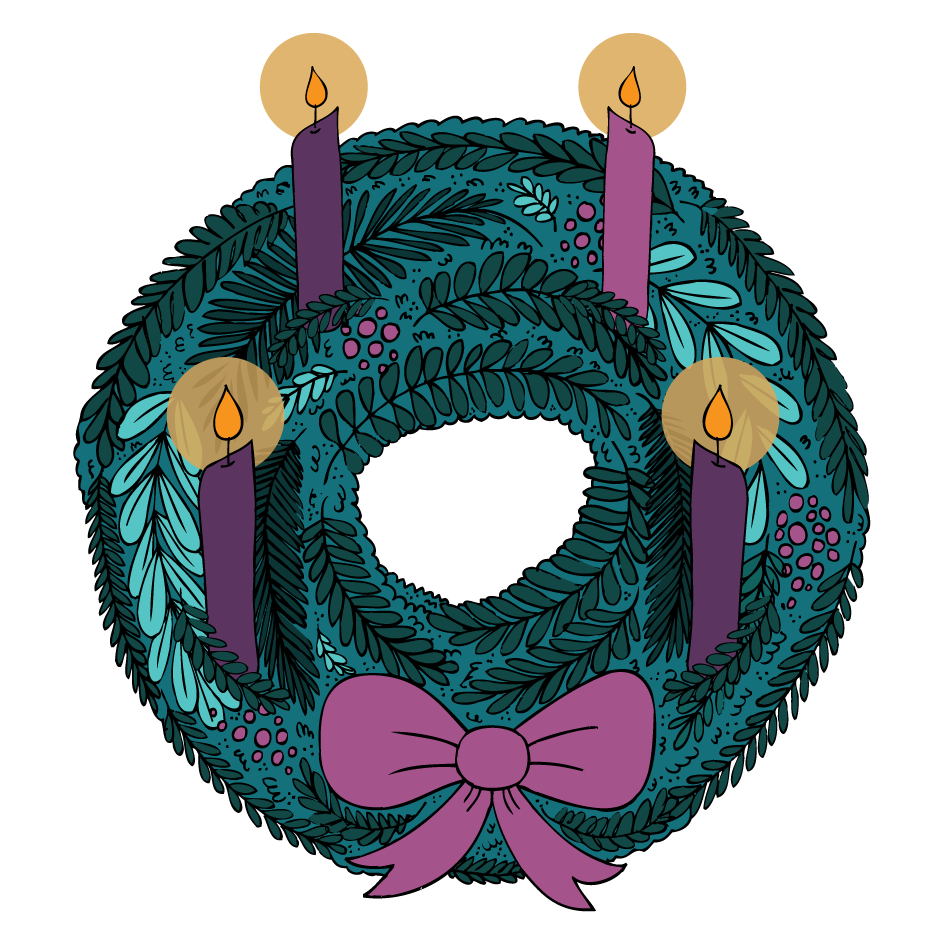
The Fourth Candle
The Candle of Peace
Luke 2:1-7The fourth candle is called the Candle of Peace. This candle symbolizes the story about a humble couple, Mary and Joseph, who gave birth to a baby, Jesus, in an ordinary little town called Bethlehem. Their story reminds us of the faith that Mary and Joseph had as they accepted God's will for their lives. In the fourth week of Advent, we give thanks for Jesus who is the bringer of peace, and through Him peace is found. Jesus teaches us that those who make peace shall also be called the children of God.
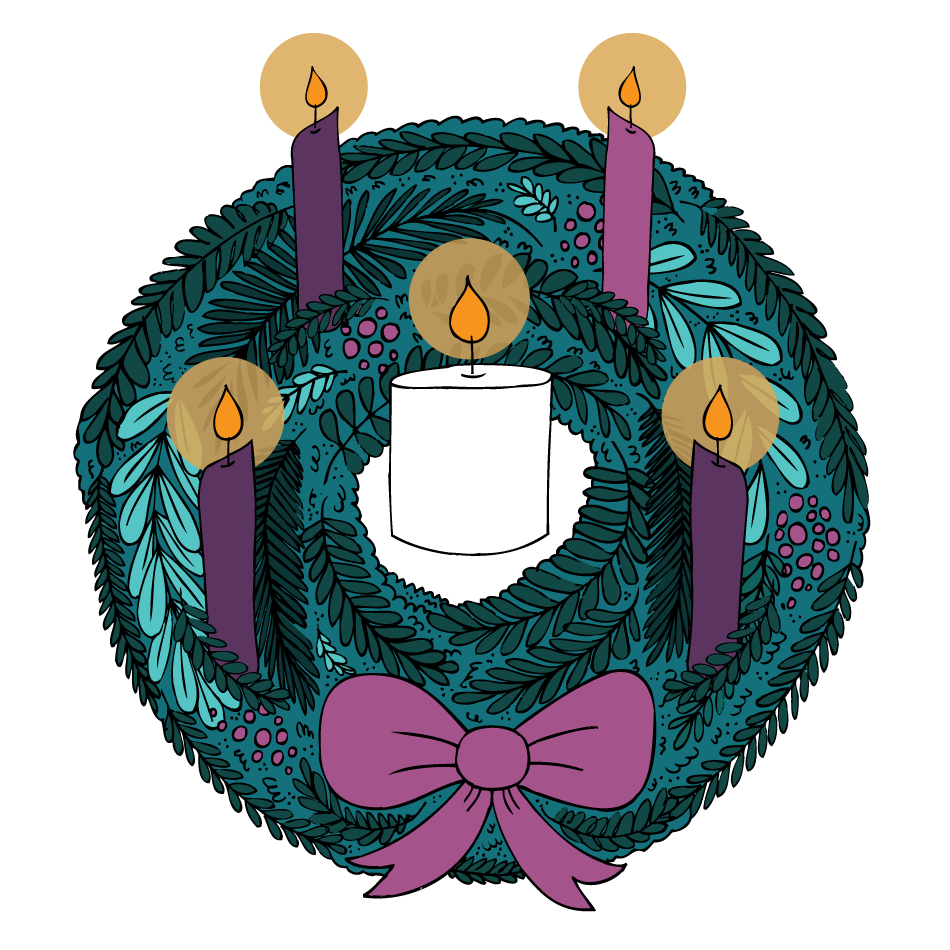
The Fifth Candle
The Christ Candle
John 3:16 "For God so loved the world, that he gave his only Son, that whoever believes in him should not perish but have eternal life."Advent finds its completion in the final candle, the Christ Candle, in the centre of the wreath. The candle is lit on Christmas Eve or Christmas Day.
As Christians, we celebrate together the birth of Jesus, and then follow His life and teachings in the New Testament. Jesus teaches on prayer, love and forgiveness, among other countless lessons. During the Christmas season, we especially pray that we will be granted the spirit of Christ, so we can live in the fullness of His character every day.
Want more? Subscribe for the 2019 Weekly Advent Devotionals to receive each week's meditation directly to your inbox.
Join the conversation using #WycliffeLights on Facebook, Twitter, and Instagram. Stay up to date by subscribing to our monthly e-newsletter the Word @ Wycliffe.




